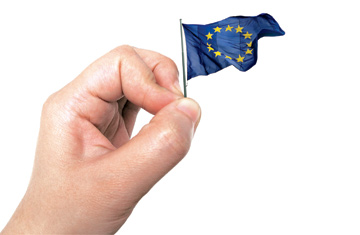
(2 of 4)
Critics point to the selection of Herman Van Rompuy and Catherine Ashton as Europe's President and Foreign Minister as symbolic of a lack of vision. Van Rompuy, a former Belgian Prime Minister, is known for his ability to balance local sensitivities — no small feat in Belgium — and cajole opposing camps towards a consensus. Useful attributes, no doubt, but hardly the ones needed to make the E.U. count on the international stage. Ashton, a former British minister and European trade commissioner, has little experience in foreign affairs. "Van Rompuy and Ashton give the impression of being chosen for their limits rather than their merits," says Dominique Moïsi, senior adviser at the French Institute for International Relations. One senior European official frets that when it comes to the E.U. projecting itself, the choice of Van Rompuy and Ashton means the grouping will have to reconcile itself to five years of underperformance.
It's early days for the new team, of course. Van Rompuy and Ashton could surprise their detractors. "We should be ambitious," Ashton told TIME in late January. But for all that ambition, Europe is no closer than it ever was to answering Henry Kissinger's famous question: "Who do I call when I want to call Europe?" So what explains the gap between Europe's stated ambition in foreign policy and its performance? And how can that gap be closed?
No Europe: So What?
Start with history. The modern conception of a united Europe was born in the embers of World War II and rested upon the notion that binding Germany's fortunes to those of France and the rest of Europe could end the violence that had regularly engulfed the continent for centuries. Judged by that measure — and notwithstanding the pathetic failure to prevent or quickly end the wars of the Yugoslav succession — the E.U. has worked out fine. For most of that time, its leaders have been happy to concentrate on domestic policies: a single market, a European currency, free movement of people. The E.U.'s defenders, moreover, would argue that in its immediate neighborhood, its success has had a "demonstration effect" that is not to be underestimated. Just as Greece, Portugal and Spain wanted to lock in their democratic rights by joining the E.U. in the 1980s, so when the Soviet yoke was lifted, the nations of Eastern and Central Europe wanted to join the E.U. as fast as they could. By extending an area of peace and liberal government to the east, the E.U. has done much to calm a part of the world that not long ago was the cockpit for murderous rivalries.
Beyond its neighborhood, however the E.U. has rarely punched its collective weight. The main reason for that, of course, is that member states still like to defend and pursue their own national interests, rather than subsume them in a multinational body. There's also a case — and plenty in Europe make it — that Europe is better off continuing to aim low. "Very few European countries see the role of the E.U. as a power," says Moïsi. "They see Europe as a place — with a common market, a common currency, but not a power that should project itself onto the outside world."
That argument begins to break down when you have aspirations to help fix the world. Over the past decade or so, many Europeans have liked to think of the E.U. as a counterweight to Washington and now Beijing: a big, rich, but more benign global power. Ask Catherine Ashton to define Europe's ideals, and her aspirations are far from modest: "Democracy. Human rights," she says. "Wanting to see stable, secure nations, with whom we enjoy political dialogue and economic relationships."
Europe is right to think big — both for its own sake and for that of others. Many in the rest of the world would welcome a stronger European voice. Capitals from Pretoria to Washington are constantly urging more from their European allies. As U.S. Assistant Secretary of State for European and Eurasian Affairs Philip H. Gordon said to the House Foreign Affairs Committee after the ratification of the Lisbon Treaty last year: "We hope E.U. member states will invest the post-Lisbon institutions with the authority and capacity to make concrete contributions to the pressing global challenges we face together." In Africa, India, Latin America, leaders would fall over themselves to engage more closely with a power that's neither the U.S. nor China — both nations that can come across as too powerful, too proselytizing of their own values, too prone to see their interaction with others solely in terms of their own national interests.
